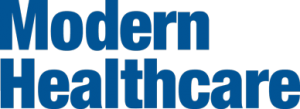News Room
May 11, 2016 | Modern Healthcare
By Shannon Muchmore | May 11, 2016
CMS Acting Administrator Andy Slavitt told lawmakers that the agency's implementation of the new Quality Payment Program will be mindful of reporting burdens on small physician practices and allow for...
May 10, 2016 | Modern Healthcare
By Shannon Muchmore | May 10, 2016
While healthcare providers are getting ready to implement more value-based payment programs, such as the new Medicare reimbursement system for physicians, regulators are trying to improve and speed up...
May 9, 2016 | Medical Economics
Primary care practices will need to adopt some elements of the patient-centered medical home (PCMH) in order to thrive under the new Merit-based Incentive Payment System (MIPS).
That’s the view of Nitin Damle, MD, FACP, a Rhode Island...
May 6, 2016 | The National Law Review
Continuing our blog series on CMS’s massive proposed rule for the implementation of the Medicare Access and CHIP Reauthorization Act of 2015 (MACRA), we dedicate this post to examining the Advance Payment Model (APM) provisions of the...
May 4, 2016 | Brookings
The passage of the Medicare Access and CHIP Reauthorization Act (MACRA) just over a year ago signaled a strong and unique bipartisan agreement to move towards value-based care, but until recently, many of the details surrounding how it...
May 3, 2016 | Medscape
Editor's Note:
From young physicians considering their first practice model to experienced doctors contemplating a change, the advantages and disadvantages of a new situation can be overwhelming. For this second installment in a series...
May 2, 2016 | American Psychological Association
A new review of the evidence suggests that patient-centered medical homes can reduce unnecessary use of health-care services and thus health-care costs.
Conducted by the Patient-Centered Primary Care Collaborative, a nonprofit membership...
May 2, 2016 | Wall Street Journal
A few years ago, Luberta Whitfield suffered a stroke that left her right side paralyzed. The wheelchair-bound 87-year-old has emphysema and diet-controlled diabetes, is dependent on oxygen, and recently tore the right rotator cuff on her...
April 29, 2016 | Becker's Hospital Review
CMS issued the 962-page proposed rule Wednesday for the Medicare Access and CHIP Reauthorization Act to reform physician Medicare payments in the wake of the repeal of the sustainable growth rate formula.
The proposed rule was met with...
April 29, 2016 | Health Affairs
The mother ship has landed. On Wednesday, April 27, the Centers for Medicare and Medicaid Services (CMS) released the highly anticipated proposed rule that would establish key parameters for the new Quality Payment Program, a framework...
April 27, 2016 | CMS Blog
By: Andy Slavitt, Acting Administrator, Centers for Medicare & Medicaid Services
Dr. Karen DeSalvo, National Coordinator, Office of the National Coordinator for Health IT
Seven years ago, Congress passed a law to spur the country to...
April 27, 2016 | Bloomberg BNA
April 27 — A regulation proposed April 27 by the CMS would start the move toward a two-track doctor payment system under Medicare beginning in 2019.
The goal is to allow physicians who offer higher quality care to be paid more, Andy...
April 21, 2016 | Health Leaders Media
CMS’s new primary care payment model represents an opportunity for physicians practices experienced in care redesign to be compensated for those efforts. It signals to all groups that it’s time to get serious about improving outcomes....
April 21, 2016 | Health Affairs Blog
For more than two decades Congress and the federal government have wrestled with how to pay physicians in the Medicare program, which covers forty-seven million Americans. In 2014 Medicare paid physicians and other clinicians around $138...
April 20, 2016 | Computer World
The federal Centers for Medicare & Medicaid Services recently announced a bold move to accelerate the Comprehensive Primary Care (CPC) program, news that I have been waiting on for a long time.
To provide a bit of background, CPC is a...
April 18, 2016 | Healthcare IT News
Starting in 2019, Centers for Medicare & Medicaid Services, will change how they pay physicians in a profound way. Unfortunately, the details are complicated and confusing, and many of the particulars have yet to be worked out, which...
April 18, 2016 | HealthIT Analytics
A new survey published this month in the American Journal of Managed Care found that providers who had adopted EHRs in 2012 were significantly more likely than non-users to engage in population health management, patient communication, and...
April 12, 2016 | HealthIT Analytics
The Centers for Medicare & Medicaid Services (CMS) has unveiled the Comprehensive Primary Care Plus (CPC+) model, a new multi-payer patient-centered primary care model which aims to allow providers to deliver flexible, individualized...
April 12, 2016 | Politico
Six years after President Obama’s health reforms became law, officials in his administration told POLITICO they are launching the largest-ever initiative to transform primary care in America, an effort to give doctors more flexibility and...
April 12, 2016 | Governing Magazine
More than six years after the Affordable Care Act (ACA) was first signed into law, President Barack Obama on Monday announced plans to address what many had hoped the act would do all along: move the nation's health-care system away from a...
Pages
Recent Newsletters
April 1, 2022
December 20, 2021
September 30, 2021
June 30, 2021
March 30, 2021
Employer champions for primary care get it: regular #primarycare creates a bond for better health for workers and f… https://t.co/SiMKh5jC3p —
1 year 10 months ago
RT @CHCShealth: States seeking to reduce health care expenditures on downstream acute and specialty care can move the needle by investing i… —
1 year 10 months ago
"value-based care has a challenging 'underbelly' – administrative burden and overhead." Most health tech hasn't bee… https://t.co/W8W1Bk47bH —
1 year 10 months ago
Secondary menu
Copyright © 2024 Primary Care Collaborative











